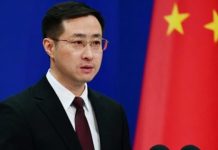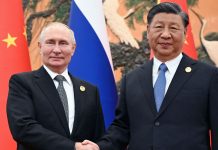The five-yearly Central Financial Work Conference, held from October 30 to 31, set the tone for China’s financial development over the next few years. Notably, it talked about the real estate industry for the first time in its 26-year history. Sound development of the industry is now obviously a priority.
The conference urged promotion of a virtuous interaction between financial and property industries, the strengthening of capital supervision over real estate enterprises, and the meeting of the reasonable financing needs of enterprises under different ownerships without discrimination. Tailored policies should be worked out for different cities so as to better support those who need to purchase homes as a necessity or who urgently need to improve their living conditions. The construction of affordable houses for low-income families is to be accelerated.
Real estate has been one of the drivers of China’s economic growth over the past two decades. The investment frenzy, accompanied by high levels of debt and financial leverage, led to mounting risks. An array of policies focusing on restricting second home purchases and financing for the property industry were introduced from 2014 to 2017 to alleviate bubbles resulting from speculation. These policies helped cool the market. However, in combination with the effects of COVID-19, they were believed to have exacerbated difficulties for developers. China’s top property enterprise Evergrande Group, for one, filed for bankruptcy protection in the U.S. after struggling with a debt crisis. The company’s Chairman and Executive Director Xu Jiayin, also known as Hui Ka Yan, has been subject to mandatory measures due to suspicion of criminal activity.
Chinese authorities in late August released a slew of favorable policies to stimulate the real estate market, such as lowering minimum down payment ratios nationwide and adjusting the criteria for identifying first-time home buyers. Nevertheless, real estate companies continue to confront challenges. Compared with state-owned ones, privately run property firms are facing bigger problems.
As was put forward during the conference in late October, real estate firms of different ownerships and scales should be granted equal access to financing. In this way, all law-abiding developers will have sufficient financing and, as a result, their credit risks will be eased, boosting property market confidence.
In recent years, the principle “housing is for living in, not for speculation” was frequently emphasized in the wording of property-related policies and official documents. The fact that it was not mentioned during the conference has stirred up anticipation for more relaxation. Given the different economic conditions across the country, the extent to which property industry controls are relaxed in the second half of 2023 has varied from city to city. In third and fourth-tier cities, restrictions on home purchases have been widely lifted, while in big metropolises like Beijing, Shanghai and Guangzhou, they have only been partly removed. Indeed, it is possible for some cities to further cut mortgage rates and down payment ratios.
Liquidity issues are still simmering in the Chinese real estate industry, with many developers defaulting on debts. This is partly attributable to loopholes in the country’s real estate financing supervisory system. The proposal to step up supervision over the use of funds by real estate enterprises has sent out a strong signal. In the future, real estate financing is unlikely to be embezzled for other purposes as it allegedly was by Evergrande, which will help make sure that homes are delivered as planned. –The Daily Mail-Beijing Review news exchange item






